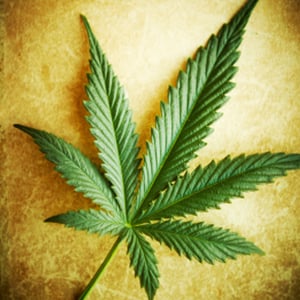
Recent reports from the South African Community Epidemiology Network on Drug use (SACENDU) suggest that cannabis and alcohol are the most commonly abused drugs.
South African Medical Research Council chief specialist scientist in their alcohol and drug abuse unit, Bronwyn Meyers, stated that 11% (5.7million people) of the South African population will suffer from an addiction disorder in their lifetime.
“Add to that the ‘locally formulated’ drug whoonga or nyaope (mixture of heroin and dagga), along with the rising use of heroin, cocaine (crack) tik (methamphetamine) and you have a recipe for destruction and early death,” says Vos.
Highly addictive drug called whoonga
Whoonga – also called wunga or nyaope – is a potent and highly addictive mixture of marijuana, heroin and HIV medications. “The mixture costs around R20 on the streets, but users quickly reach the point of needing more and more, and the drug becomes unaffordable. Addicts are often forced to turn to crime to accommodate their habit, making the social issues even more difficult.”
In 2012, Dr David Bayever from the government drug control organisation CDA was quoted as saying that that at least 15 percent of South Africans have a drug problem and that the number is expected to rise. “While some drugs are produced directly in South Africa, it is also a major trans-shipment hub for importing and exporting them.”
In an effort to highlight the dangers of drugs and the value of knowledge about them, the South African National Council on Alcoholism & Drug Dependence (SANCA) is participating in International Drug Day during the week of 26 June 2013. The Official Global Slogan for the International Day the week 26 June 2013 is "Make health your new high in life, not drugs".
Looking at the value of your life
“The slogan ‘Make health your new high in life, not drugs’ was adopted to encourage people to look at the value of their life and how quickly it can be lost through drug use. It’s also important to note that it’s not just drugs like heroin and whoonga that can steal your life, but over the counter (OTC) medications and steroids too.”
In its quest to be the most effective organisation in the field of prevention and treatment of chemical dependence in South Africa, SANCA offers in- and out-patient treatment options, as well as Adolescent Centres around South Africa. “Besides detoxification, our services include intensive group, family and individual therapy, medical management, children’s groups, drug testing and aftercare,” Vos says.
With drug addiction, prevention is always better than cure: “By the time people get to SANCA, their lives are unmanageable and their physical and mental health is usually bad. Parents and other family members need to talk to their children about drug abuse early, as the age at which people are becoming exposed to drugs is far younger now than ever before,” explains Vos.
SANCA has 30 SANCA affiliates and 47 service centres nationally, prevention programmes and community development is a high priority at all SANCA affiliates
“Encouraging ‘getting high on life’ rather than drugs could include assisting youngsters to explore sports and creative activities, where their energies can be spent on healthy pursuits,” he adds.
For more information on International Drug Day or the support SANCA offers, call SANCA on 0861 476 22 or any Sanca office around the country.




 Publications
Publications
 Partners
Partners









